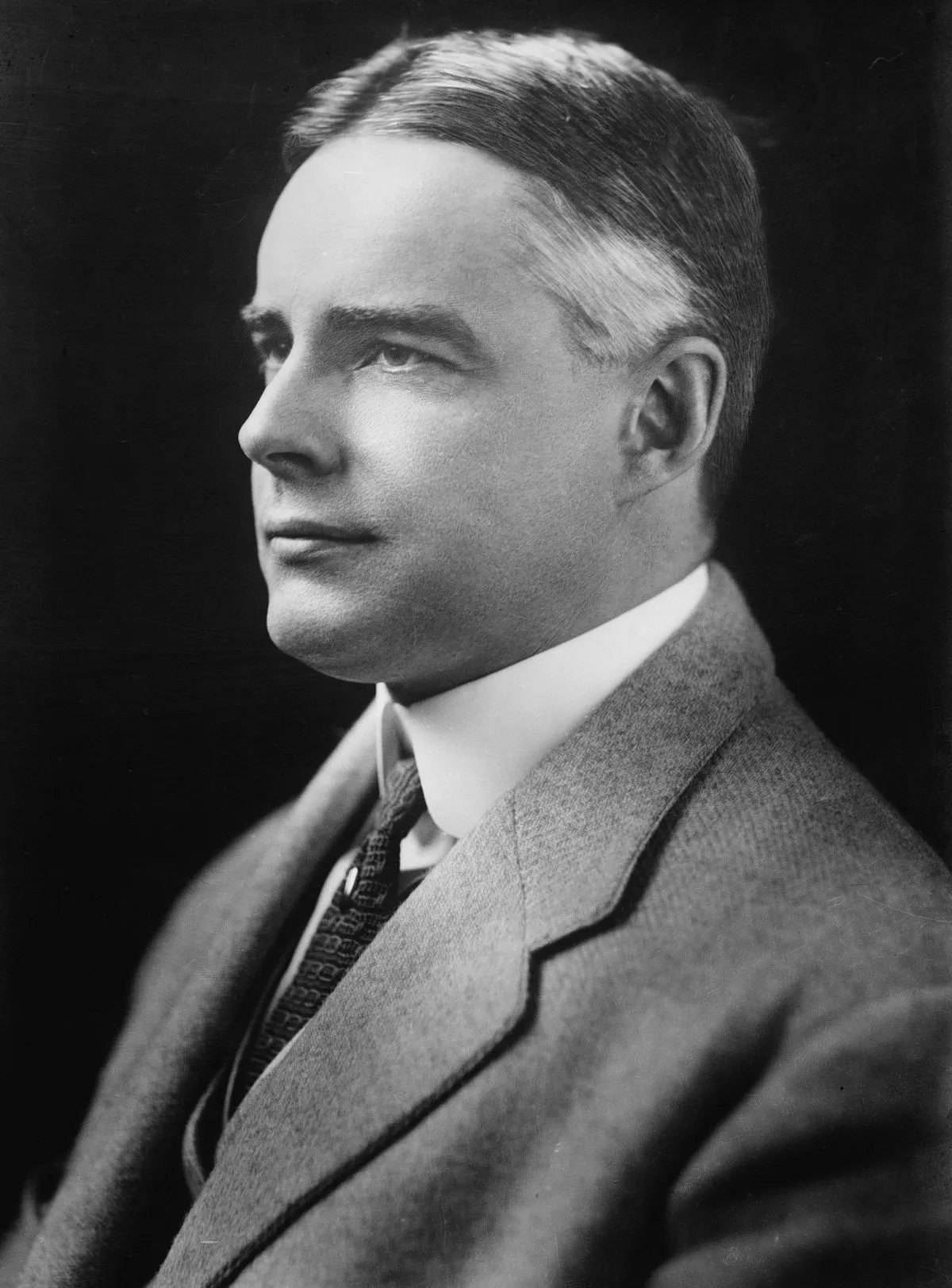 1.
1. Albert Cabell Ritchie was an American lawyer and politician.

 1.
1. Albert Cabell Ritchie was an American lawyer and politician.
Albert Ritchie has the eighth-longest gubernatorial tenure in post-Constitutional US history at 5,474 days.
Albert Ritchie was born on August 29,1876, in Richmond, Virginia, to relatively distinguished parents.
Albert Ritchie's mother, Elizabeth Caskie Cabell, was a granddaughter of William H Cabell, a governor of Virginia, and great niece of Joseph Cabell, a close associate of Thomas Jefferson.
Albert Ritchie moved to Baltimore with his family shortly after his birth and received his early education from private schools including the Carey School for Boys, which later became known as the Boys' Latin School.
Albert Ritchie received a bachelor's degree from Johns Hopkins University in 1896, and his law degree from the University of Maryland School of Law in 1898.
Albert Ritchie entered into practice with the firm of Steele, Semmes, Carey and Bond in 1900, and in 1903 was appointed assistant city solicitor of Baltimore.
Albert Ritchie continued to serve as solicitor until 1910, and continued to practice law with Janney until 1919.
In 1907, Albert Ritchie was appointed as a professor of law at the University of Maryland School of Law.
In 1907, Albert Ritchie married Elizabeth Catherine Baker of Catonsville, Maryland.
However, in June 1916, Baker filed for divorce under the charge of abandonment, since Albert Ritchie had left her to live with his mother in 1910.
Albert Ritchie did not challenge her claim, and the divorce was finalized soon thereafter.
On July 1,1910, Albert Ritchie was appointed as people's counsel to the Public Service Commission of Baltimore.
Albert Ritchie garnered much attention for fighting to lower gas and electricity prices for the people of Baltimore that resulted in annual savings of $500,000.
Albert Ritchie resigned on February 16,1913, to return to his law practice, where he took up a case against a local utility company for producing inferior quality gas.
Albert Ritchie's actions did not go unnoticed, and he was nominated to be Attorney General of Maryland in 1915, a position he served in from December 20,1915, to December 20,1919.
On June 3,1918, Albert Ritchie took a leave of absence as attorney general to serve on the War Industries Board as general counsel.
The board was dissolved in December 1918, and Albert Ritchie returned to his position as attorney general.
Albert Ritchie went unopposed on the primary ticket, but the general election proved to be considerably more challenging and proved to be one of the closest elections in state history.
Out of nearly 225,000 votes, Ritchie won with a mere 165 votes to spare, defeating Republican challenger Harry W Nice 112,240 to 112,075.
Albert Ritchie proved one of the last strong upholders of states' rights, gaining national prominence in 1922 with his stand against President Harding during the Western Maryland coal strike, and his strenuous opposition to the Volstead Act.
The first governor of Maryland reelected since the Civil War, Ritchie loomed as a serious contender for the Democratic presidential nomination in 1924 until the compromise on John W Davis.
Albert Ritchie worked hard for the ticket, and at home achieved reforms in mental health, shellfish conservation, and law enforcement while continuing to fight federal encroachments on state prerogatives.
Albert Ritchie's actions were successful, and the Maryland educational system emerged as one of the best in the nation.
Albert Ritchie invested considerable funds in expanding and improving the highways of the state, resulting in Maryland emerging as having one of the best highway systems in the country.
Albert Ritchie was a strong opponent of the Eighteenth Amendment, which established prohibition, and was a staunch advocate of states' rights.
Albert Ritchie gained national attention for his refusal to cooperate with the administrations of Presidents Warren G Harding and Calvin Coolidge.
Albert Ritchie was again unopposed in the primary, but during the general election faced Alexander Armstrong, his successor as attorney general.
Albert Ritchie had announced early on his intentions to seek a third term as governor, but, unlike in 1919 and 1923, he faced opposition in the primary elections of 1926.
Albert Ritchie was easily nominated, having defeated Maloy by 81,500 votes.
Nevertheless, Albert Ritchie won the election by over 60,000 votes and won Baltimore and 14 of 23 counties in the state.
Albert Ritchie was sworn in for his third term on January 12,1927.
Albert Ritchie pursued one of the earliest programs of conservation of the Chesapeake Bay, enacting strict game and fishing legislation.
Albert Ritchie was nominated for a fourth term in September 1930.
Albert Ritchie won re-election by one of the largest majorities up to that time, having won by 66,770 votes.
Governor Albert Ritchie was a stalwart opponent of federal intervention in local affairs, and continued to urge programs sponsored by the business community itself.
Albert Ritchie agreed to issue state bonds to aid Baltimore, but would not borrow from President Herbert Hoover's new Reconstruction Finance Corporation until mid-1933, and his luxury tax program met stiff opposition from county representatives opposed to new tobacco taxes.
Albert Ritchie had established a national reputation during the convention of 1924 and was admired by the conservative wing of the Democratic party as a "wet" who appealed to the urban vote.
Albert Ritchie was considered a major contender for the Presidency in 1932.
Albert Ritchie was well received, but Roosevelt was nominated on the fourth ballot.
In 1934 Albert Ritchie was seeking his fifth term and "Albert Ritchie forever" seemed a real possibility.
Albert Ritchie had been married, but his work got in the way of his marriage, and he ended up getting divorced.
On February 24,1936, Albert Ritchie died suddenly and unexpectedly of what was determined to be a cerebral hemorrhage.
Albert Ritchie was interred at Greenmount Cemetery, where he was buried next to his father and mother.